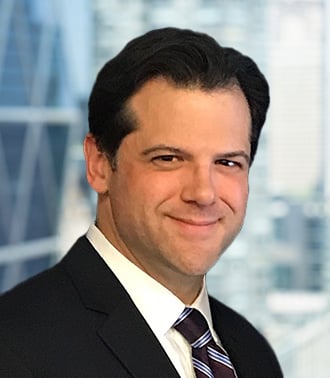Help Wanted: DOJ Seeks Cooperators To Address Corporate Crime by Offering Leniency
Over the last three months, components of the U.S. Department of Justice (DOJ) have rolled out new policies to encourage individuals to report possible corporate criminal activity and cooperate with government investigators. Just last month, DOJ announced a monetary whistleblower award program similar to the one operated by the U.S. Securities and Exchange Commission (SEC). And, most recently, on April 15, 2024, DOJ’s Criminal Division issued its nationwide Pilot Program on Voluntary Self-Disclosures for Individuals, which took effect immediately. This nationwide pilot program offers a substantial new “carrot” to cooperators in the form of an individual non-prosecution agreement (NPA) if certain conditions are met. By offering potential wrongdoers a pass on criminal charges in exchange for cooperation and information not previously known to DOJ, the government is signaling its continued focus on corporate criminal enforcement, particularly involving the financial markets, health care, procurement, and domestic and foreign corruption. Companies need to reexamine their compliance programs with these new policies in mind.
The Criminal Division’s Pilot Program requires would-be cooperators to satisfy certain conditions in order to be eligible for an NPA, including:
- The disclosure must be to the Criminal Division (rather than to another DOJ component).
- The information must be unknown to any DOJ component.
- The information must relate to one of six categories of alleged violations undertaken by, through, or related to public and private companies (of particular sizes, depending on the offense type), their insiders, or their agents, including those related to:
- Financial institutions, including schemes involving money laundering, anti-money laundering, money transmitting businesses, and fraud
- Financial market integrity
- Foreign corruption and bribery
- Health care fraud and kickbacks
- Federal contracting fraud
- Domestic bribery and kickbacks to public officials
- The disclosure must be voluntary and not in response to any government inquiry, obligation to report, or the imminent threat of disclosure or investigation.
- The disclosure must be truthful and complete, meaning that the potential cooperator must disclose all misconduct they are aware of, including their own.
- The individual must agree to cooperate fully, which could include affirmative investigative techniques (i.e., making recordings) and testifying at grand jury and trial proceedings.
- The individual must surrender their own ill-gotten gains from the reported wrongdoing (forfeiture) and compensate any victims (restitution).
- The individual must not be:
- A chief executive officer, chief financial officer, or the organizer/leader of the reported scheme
- A foreign elected or appointed official or a domestic official of any kind, including domestic law enforcement personnel
- A convicted felon, or an individual with any conviction for fraud or dishonesty
- An individual who engaged in violent or other specified harmful criminal offenses, including patient harm and terrorism
The Criminal Division’s Pilot Program builds upon similar policies announced earlier this year by the U.S. Attorney’s Offices for the Southern District of New York (SDNY) and the Northern District of California (NDCA). Of course, the Criminal Division’s policy applies nationwide, while the SDNY and NDCA policies are limited to their geographic jurisdictions. But there are other distinctions. The Criminal Division’s Pilot Program focuses on the broad violations listed above, which correlate to components of the Criminal Division, including the Fraud Section’s Foreign Corrupt Practices Act (FCPA), Health Care Fraud, and Market Integrity and Major Frauds Units. SDNY’s policy focuses on criminal conduct undertaken by or through companies, exchanges, financial institutions, investment advisers, or investment funds involving fraud, corporate control failures, or affecting market integrity, as well as conduct involving state or local bribery or fraud relating to government funds — but does not apply to bribery of federal officials or violations of the FCPA, campaign finance, tax, or environmental laws. NDCA’s policy is similar, but also emphasizes intellectual property theft. And while all three policies preserve prosecutors’ discretion to offer NPAs to cooperators who don’t satisfy every program requirement, SDNY’s and NDCA’s policies detail how prosecutors should assess whether such a cooperator merits an NPA, while the Criminal Division’s policy does not. Finally, while all three policies require cooperators to disgorge any illegal proceeds, the Criminal Division’s policy also expressly requires individuals to make restitution to victims.
These new policies come as part of DOJ’s broader effort over the last several years to entice companies and individuals alike to self-disclose potential violations to the government. Prior incentives include 2023’s revised corporate Voluntary Self-Disclosure Policy and, more recently, the March 2024 framework for criminal whistleblower financial incentives. If the SEC’s whistleblower award program is any indicator, offering financial awards for information could substantially multiply the tips that DOJ receives. By announcing a willingness to give NPAs to potentially culpable but cooperative individuals, and by offering financial incentives to nonculpable individuals, DOJ is undertaking new tactics to facilitate more corporate criminal enforcement actions. These efforts further pressure companies to ensure they have effective compliance programs that include (1) clear processes that encourage and ease employees’ internal reporting about potential wrongdoing and (2) robust policies, procedures, and controls to monitor for and curtail potential illegal activity.
We will continue to scrutinize DOJ’s announcements in this area and analyze them on Enforcement Edge or in our advisories. For questions on this or any other subject, please reach out to the authors or any of their colleagues in Arnold & Porter’s White Collar Defense & Investigations practice group.
© Arnold & Porter Kaye Scholer LLP 2024 All Rights Reserved. This blog post is intended to be a general summary of the law and does not constitute legal advice. You should consult with counsel to determine applicable legal requirements in a specific fact situation.




